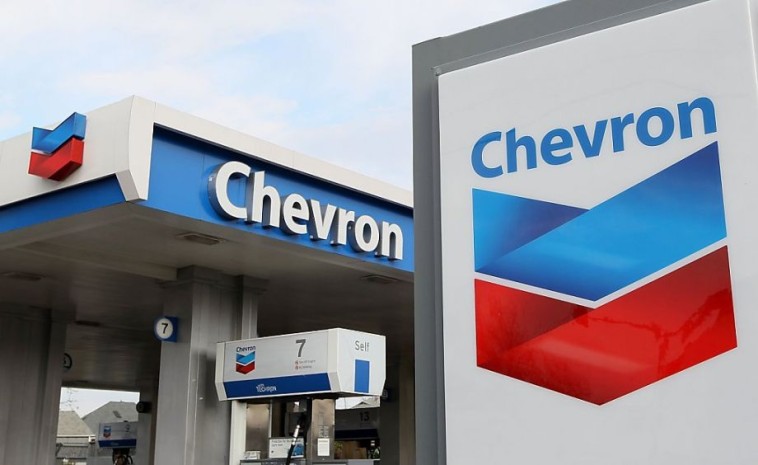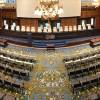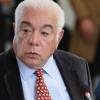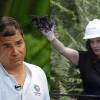Caso Chevron
Chevron in Ecuador: Is the End in Sight?
Law 24/08/2016

This fall it will be 23 years since the Dickensian Chevron case, considered the Jarndyce v. Jarndyce of global litigation, began. That’s longer than one of the English chancery cases that inspired Charles Dickens to create Jarndyce, the absurd court case in Bleak House that has become a metaphor for endless litigation. Now that the U.S. Court of Appeals for the Second Circuit has fully embraced Chevron Corp.’s view—that the Ecuadorean judgment against it was rotten with fraud— is there any chance that either side will give up the ghost of their case? To invoke Dickens again: “Bah, humbug!”
The plaintiffs who convinced Ecuadorean courts to hold Chevron liable for polluting the Amazon are in a weak position. Proceeding alphabetically through the nations of the world, their efforts to collect $9.5 billion from Chevron are faltering in Argentina, Brazil, Canada and Ecuador.
Argentina’s and Brazil’s public prosecutors recommended against enforcement of a corrupt Ecuadorean judgment in April 2016 and May 2015, respectively. (The Argentine opinion, which escaped press notice until now, was disclosed in Chevron’s Form 10Q.) Neither country is in any position to take on board another nation’s corruption scandal.
Pinning their hopes on Canada, the plaintiffs have stated that a “trial” will begin in September. What’s actually on deck is their motion to strike Chevron’s defenses to enforcement, and Chevron’s motion to dismiss for suing the wrong corporate entity. If those motions fail, then Chevron can argue that the Second Circuit ruling is binding or persuasive. At worst, Chevron will have to resubmit its undeniable evidence of fraud before another rational court. It’s not nervous.
The Ecuadorean theater evokes the parody of radical politics in “Monty Python’s Life of Brian,” where the People’s Front of Judea undercut the Popular Front of Judea— or was it the Judean People’s Front?—rather than fight the evil Romans together.
In this case, the Union of Persons Affected by Texaco (led by counsel Pablo Fajardo) splintered from the Amazon Defense Front (allied with counsel Steven Donziger) over enforcement in Ecuador. Here’s their byzantine story.
Ecuador owed about $100 million to Chevron from an old, unrelated arbitration. Plaintiffs had put a lien on that award—and hoped Ecuador would funnel the money to them. But Ecuador’s president needed to pay Chevron before he could issue $1 billion in sovereign bonds last month. The president got Fajardo to quietly release the plaintiffs’ lien so that Ecuador could pay the old debt to Chevron. When the Frente de Defense de la Amazonia got wind of what had happened, it denounced the Union de Afectados pour la Petrolera Texaco, and threatened to sue Fajardo. The upshot is that the plaintiffs lost their last chance for litigation funding—and no one quite knows who owns an uncollectible judgment that is technically worth over $10 billion with interest and has consumed Steven Donziger since 1993.
Meanwhile, back in the main arbitration, Chevron argues that Ecuador violated international law by letting the plaintiffs run wild in their courts. If the panel agrees, then Ecuador may have to cover Chevron’s obscene legal fees (certainly in the hundreds of millions of dollars), or else find itself shut out of the capital markets again. A rational Ecuador would repudiate the corrupt plaintiffs lawyers. But that’s hard to imagine as long as the populist Ecuadorean president, Rafael Correa, calls the shots. Whether Correa still calls the shots after a new president takes office next year remains to be seen.
Would Chevron be open to a settlement if the political winds change in Ecuador next year? Alas, that seems unlikely.
Chevron has unbeatable evidence, and remains determined to inflict pain on those who perpetrated or enabled the fraud. Chevron is a repeat player in corrupt overseas legal systems, and it damn near got trapped with no legal redress. It appropriately aims to deter the global litigation frauds of the future, and to create accountability for global litigation fraud in multiple systems of law. (Less admirably, it would like to exact revenge and cover its costs.)
Powerful victims of litigation fraud need protection. And though I mostly agree with Bloomberg’s Paul Barrett on the facts (and both of us mostly agree with the Second Circuit), I do not share Barrett’s fear that businesses will succeed in using the precedent to avoid deserved human rights liability in legitimate foreign courts. Nor do I fear that an arbitration precedent would likewise be abused. The facts in this case are too over-the-top. Honest human rights lawyers can easily distinguish themselves from Donziger and Fajardo.
Powerless victims of environmental pollution need protection more. The problem, as Judge Lewis Kaplan noted, is that corrupt counsel cheat their clients of the chance to prove their case. I did my best to review the fractured scientific record in my e-book, “Crude Awakening,” and could find no clear proof of a link between oil pollution and health effects in the Ecuadorean Amazon. But we can at least say that Texaco and PetroEcuador engaged in shoddy practices, and left an immense amount of hydrocarbons in the rain forest.
I respectfully renew my call upon Chevron, without honoring its corrupt opponents or their false narratives, to make a gesture of goodwill for residents of the Ecuadorean Amazon at the litigation’s conclusion.
Fuente OriginalNotas relacionadas
-
 Población indígena en la Amazonía ecuatoriana se disparó entre 2001 y 2022, según el Censo
Población indígena en la Amazonía ecuatoriana se disparó entre 2001 y 2022, según el Censo -
 Hace 5 años, Tribunal de La Haya falló a favor de Chevron
Hace 5 años, Tribunal de La Haya falló a favor de Chevron -
 Noticias de Ecuador. Podcast Noti Oriente [7 de julio, 2023]
Noticias de Ecuador. Podcast Noti Oriente [7 de julio, 2023] -
 Fernando Santos desenmascara a los autores del fraude contra Chevron en Ecuador
Fernando Santos desenmascara a los autores del fraude contra Chevron en Ecuador -
 En Ecuador aún no hay sancionados tras 12 años de la fraudulenta sentencia contra Chevron
En Ecuador aún no hay sancionados tras 12 años de la fraudulenta sentencia contra Chevron -
 ‘La mano sucia’ de Correa apoyando el fraude contra Chevron fue ‘plata perdida’
‘La mano sucia’ de Correa apoyando el fraude contra Chevron fue ‘plata perdida’
